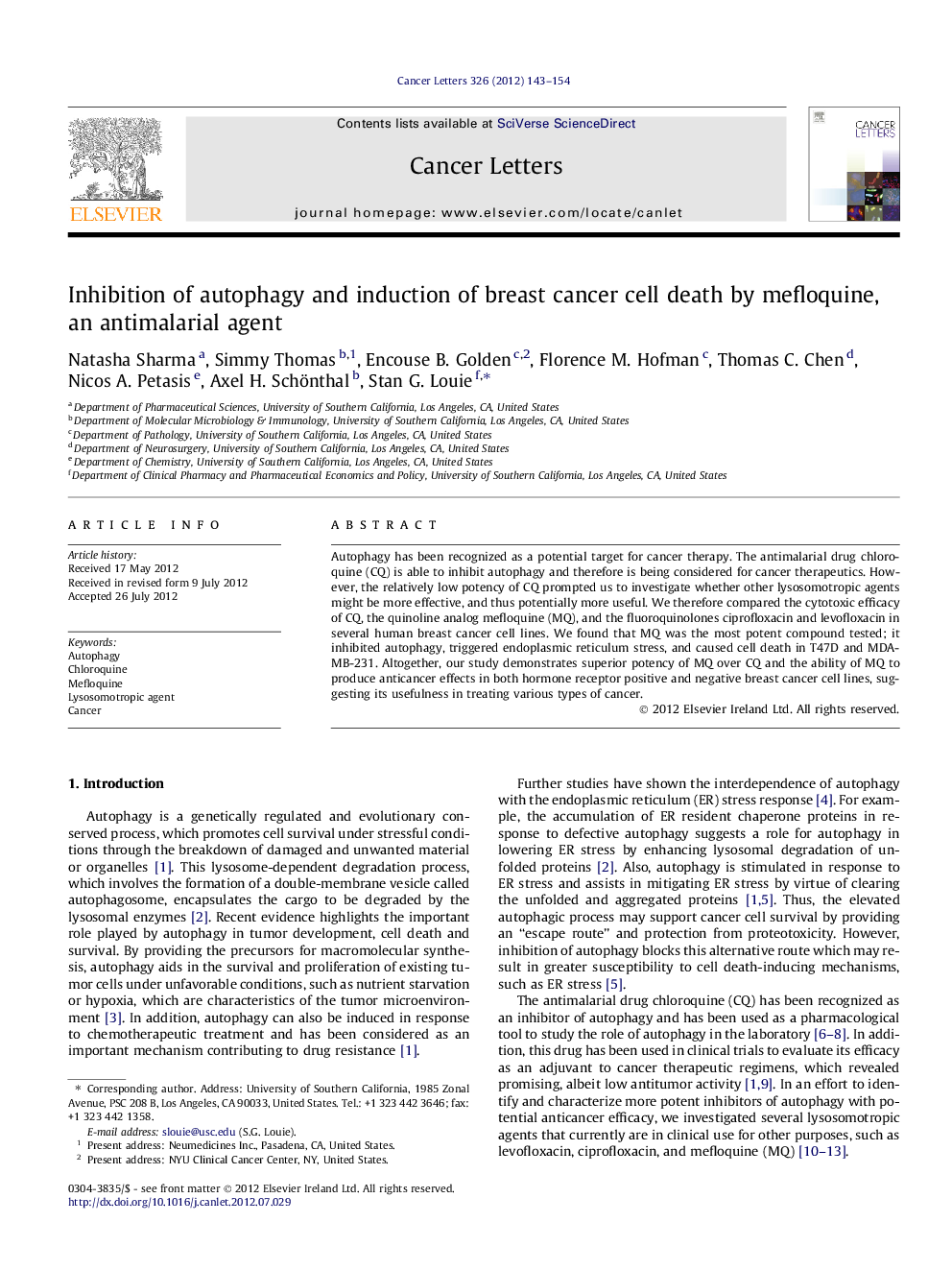| کد مقاله | کد نشریه | سال انتشار | مقاله انگلیسی | نسخه تمام متن |
|---|---|---|---|---|
| 2113117 | 1084443 | 2012 | 12 صفحه PDF | دانلود رایگان |

Autophagy has been recognized as a potential target for cancer therapy. The antimalarial drug chloroquine (CQ) is able to inhibit autophagy and therefore is being considered for cancer therapeutics. However, the relatively low potency of CQ prompted us to investigate whether other lysosomotropic agents might be more effective, and thus potentially more useful. We therefore compared the cytotoxic efficacy of CQ, the quinoline analog mefloquine (MQ), and the fluoroquinolones ciprofloxacin and levofloxacin in several human breast cancer cell lines. We found that MQ was the most potent compound tested; it inhibited autophagy, triggered endoplasmic reticulum stress, and caused cell death in T47D and MDA-MB-231. Altogether, our study demonstrates superior potency of MQ over CQ and the ability of MQ to produce anticancer effects in both hormone receptor positive and negative breast cancer cell lines, suggesting its usefulness in treating various types of cancer.
► Mefloquine is an autophagy inhibitor.
► Mefloquine is more potent than chloroquine.
► Mefloquine produces anticancer effects in both hormone positive and negative breast cancer cell lines.
► Mefloquine is effective in drug resistant cell line.
Journal: Cancer Letters - Volume 326, Issue 2, 30 December 2012, Pages 143–154